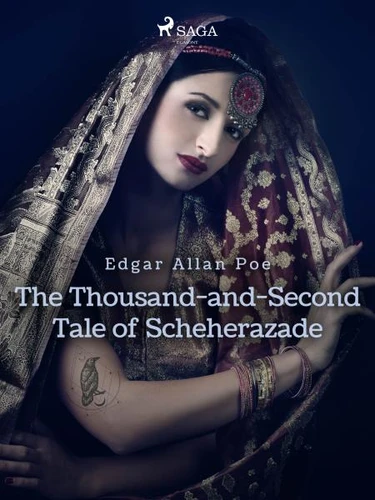Edgar Poe (1809-1849) commence à écrire en 1829. Considéré comme un poète maudit, ses écrits cauchemardesques et fantastiques sont aujourd'hui considérés comme précurseurs du surréalisme. C'est grâce aux traductions de Charles Baudelaire qu'il est connu en France.
The Thousand - and - Second Tale of Scheherazade
Par :Formats :
Disponible dans votre compte client Decitre ou Furet du Nord dès validation de votre commande. Le format ePub est :
- Compatible avec une lecture sur My Vivlio (smartphone, tablette, ordinateur)
- Compatible avec une lecture sur liseuses Vivlio
- Pour les liseuses autres que Vivlio, vous devez utiliser le logiciel Adobe Digital Edition. Non compatible avec la lecture sur les liseuses Kindle, Remarkable et Sony
 , qui est-ce ?
, qui est-ce ?Notre partenaire de plateforme de lecture numérique où vous retrouverez l'ensemble de vos ebooks gratuitement
Pour en savoir plus sur nos ebooks, consultez notre aide en ligne ici
- Nombre de pages7
- FormatePub
- ISBN978-87-26-58691-6
- EAN9788726586916
- Date de parution05/10/2020
- Protection num.Digital Watermarking
- Taille317 Ko
- Infos supplémentairesepub
- ÉditeurSAGA Egmont
Résumé
Have you ever wondered what would have happened if Scheherazade had not ceased with her tales and told the king another story that is actually a retelling of a previous story, but with an unexpected twist? Humorous, naïve, and quite contemporary, Edgar Allan Poe's "The Thousand-and-Second Tale of Scheherazade" is a perfect example of how high can one's imagination soar when unfettered by the restrictions of modernity.
What is more, the story can be read as an example of how unpleasant the 19th century in Europe and America can be for a foreigner, and also mocks the developments of the industrial civilization. The allegorical and humorous depictions are unforgettable, and it is no wonder if the reader asks for more.
What is more, the story can be read as an example of how unpleasant the 19th century in Europe and America can be for a foreigner, and also mocks the developments of the industrial civilization. The allegorical and humorous depictions are unforgettable, and it is no wonder if the reader asks for more.
Have you ever wondered what would have happened if Scheherazade had not ceased with her tales and told the king another story that is actually a retelling of a previous story, but with an unexpected twist? Humorous, naïve, and quite contemporary, Edgar Allan Poe's "The Thousand-and-Second Tale of Scheherazade" is a perfect example of how high can one's imagination soar when unfettered by the restrictions of modernity.
What is more, the story can be read as an example of how unpleasant the 19th century in Europe and America can be for a foreigner, and also mocks the developments of the industrial civilization. The allegorical and humorous depictions are unforgettable, and it is no wonder if the reader asks for more.
What is more, the story can be read as an example of how unpleasant the 19th century in Europe and America can be for a foreigner, and also mocks the developments of the industrial civilization. The allegorical and humorous depictions are unforgettable, and it is no wonder if the reader asks for more.






















